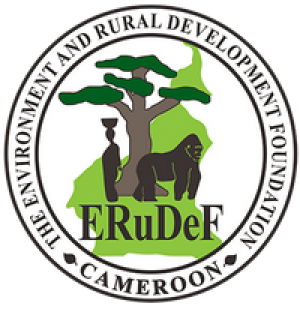ERuDeF INSTITUTE OF BIODIVERSITY
The ERuDeF University of Biodiversity Sciences is Cameroon’s pioneer environmental/biodiversity conservation training institute created in 2012 to provide leading edge and holistic professional training in conservation and development management to the future cream of conservation and development leaders.
MISSION
To provide leading edge and holistic professional training in conservation and development management to the future cream of conservation and development leaders.O
OUR GOAL
To engage students in diverse learning environments that train them to think critically and to expand their intellectual horizons while attaining the knowledge and skills.O
OUR PROMISE
Be part of a team that will not only open you up to opportunities in the field of conservation but will open your minds and hearts to protect the world in which we live. O
OVERVIEW AND HISTORY
The ERUIABS is Cameroon’s pioneer biodiversity institute created in 2012. The common view expressed by many employers has been that there are a large number of job seekers but there are no professionals. Job seekers are getting more and more frustrated by prospective employers asking for years of experience. The question then is where will one get this experience? Again, through our interviews, students understanding of fundraising are limited to maybe ‘driving my father’s car and making some money from it’. Far from it! There is more to fundraising than graduates think, the dynamics and politics are much more. ERuDeF Institute was therefore created to bridge this gap.
While the University provides the theoretical basis of students up-bringing, ERuDeF Institute provides the professional and practical basis of their professional insertion into both the job market and academic fields. All programmes at ERuDeF Institute are academically intensive, research and professional focused and challenging requiring a lot of strategic thinking and meditation.
The programme gives you a chance to explore opportunities in the area of conservation, biodiversity management and non-profit development. You come out of this programme as a self-made graduate capable of funding and piloting your own career and programmes. Our understanding is that even if you cannot gain employment, you should be able to at least, raise funds to set up and manage a project. C
COURSES OFFERED
- Agroforestry management
The aim of this course is to train students who will be able to use of agroforestry as an option for addressing the land use problems such as resource limitations, fragile soils, and multiple component systems in the developing world, and environmental issues and societal concerns about land use in Africa and the world.
- Biodiversity conservation
This course deals with the conceptual framework of conservation biogeography to investigate both the theoretical principles (e.g. island biogeography) and applied challenges (e.g. limited time, resources and conflicting stakeholder interests) of conserving biodiversity in the face of expanding human populations and increasing demands on natural resources.
- Environmental education
The aim of the training programme is to develop in students the basic skills needed to protect environment while enabling the student achieve a level of environmental literacy. Knowledge in environmental education is sufficient to enable trainees to educate others be proficient in designing and implementing effective instruction about the environment.
- Environmental journalism
The principal objective of the vocational training course is to improve the quality of environmental reporting in the Cameroon and world media through community outreach, networking, and building positive actions toward the sustainable management of natural resources via the mass media. It is also aimed at imbibing students with skills that will facilitate their professional integration into the field of Environmental Communication.
- Geographical Information Systems for Development
This programme trains the student to become theoretically aware and technically proficient in the use of GIS and other computer-based tools for spatial analysis.
- Mountain studies
Through this programme, students are trained to make analytical comparison of the geography of mountainous regions from around the world with emphasis on the complexities of the geo-ecosystem and the interplay between humans and the landscape in mountainous terrain. Environmental issues, sustainable resource development, and the historical roots of cultural distinctness in mountainous areas are scrutinised with case studies.
- NGO and fundraising studies
The aims of the training programme are to develop in students the basic skills needed to create and manage NGOs. Capacity building in Fundraising is an important assignment that introduces key elements of the fund development process into the lives of trainees.
For more information please visit www.erudefinstitute.orgC
CONTACT
ERuDeF University Institute
Mile 18, Muea road, P.O Box: 189,
Buea, South-west region, Cameroon
Central Africa
Website: www.erudefinstitute.org
Email: training@erudef.org
Contact number: 237-675565679
